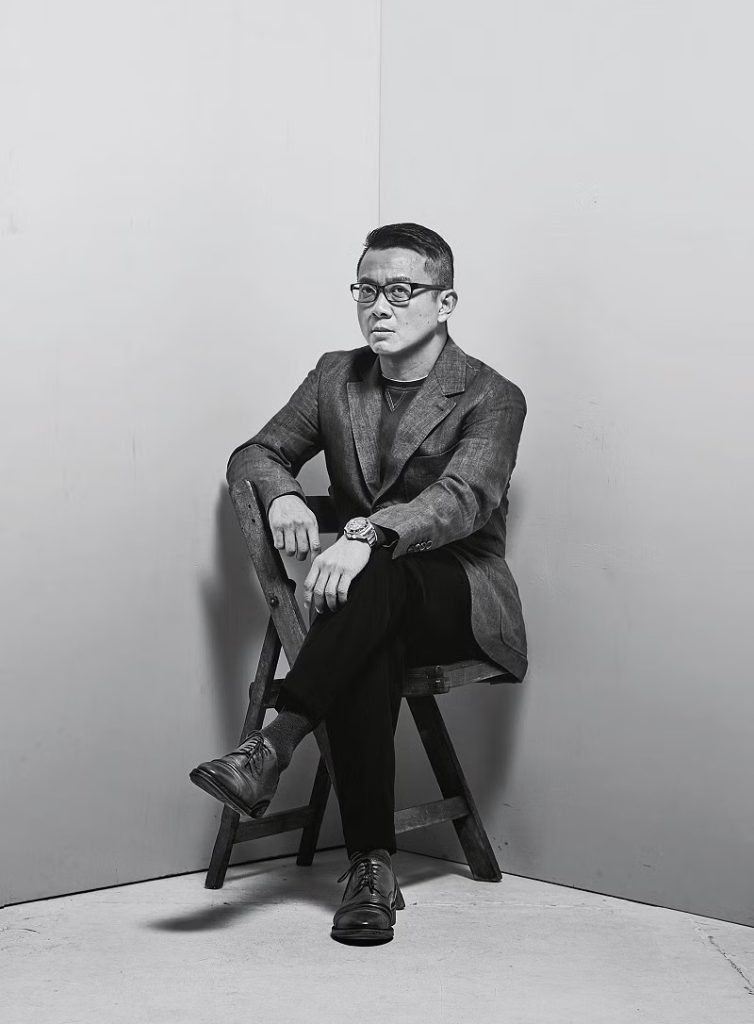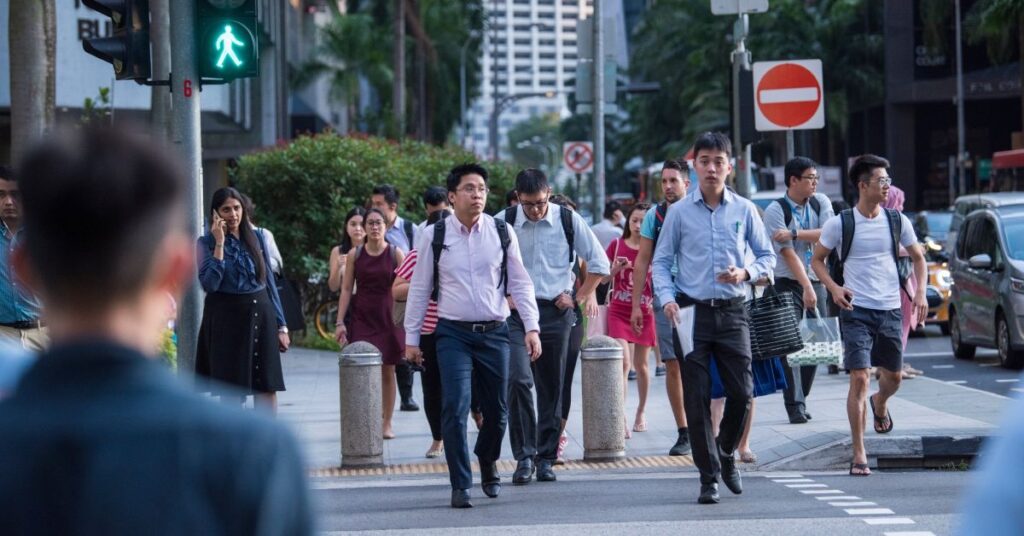Nobody expected that a small country with limited natural resources could become “the Silicon Valley in Southeast Asia.” Fast-forward five years, and Singapore has become one of the world’s top 10 startup ecosystems, according to a recent 2024 survey conducted by Startup Genome.
True to the survey’s findings, a number of homegrown companies, notably Razer, Love, Bonito, and YouTrip, have since found success locally and have expanded their operations beyond the island.
That said, only a handful of startups have achieved this feat, and many attribute this to having a capable founder who drives greater growth for a startup.
This raises several questions: Is Singapore lacking capable founders? What does it really take for entrepreneurs to take their ideas global? What’s stopping Singapore’s startup scene from growing? We spoke to professionals actively involved in the sector to share their insights.
The devil is in the execution, not the idea or the solution
Venture capitalists and startup ecosystems like Krux Asia, MSW Ventures and BLOCK71, say that being able to strongly execute an idea and adapt to sudden changes and blunders are two common traits of “capable” entrepreneurs.
“This is because the biggest challenge of a startup founder is dealing with the unknown as he or she brings the startup through different stages,” explained Kau Yi Ming, venture partner at Krux Asia.
Good ones can navigate the complexities of starting and growing a business, and are always keeping an eye on the long-term goals while managing short-term challenges.
Dr. Benjamin Tee, Vice President of Ecosystem Building at NUS Enterprice
It is also worth noting that technical skills can be built upon with time, but one’s attitude needs to match one’s capacity. Jeffrey Seah, general partner of MSW Ventures, explained that we should not define a founder’s capability based on their paper qualifications or look at a binary of haves and have-nots.
“Instead of pinpointing elusive metrics to define capability, it’s about looking at the whole person and how they handle what comes their way,” he added.
The neverending thirst for solving problems can push entrepreneurs to dig deep to create an effective solution for their market, which happened to be the case for Jake Berber, co-founder of homegrown food tech startup Prefer.

While coffee is one of the world’s most in-demand crops, it is also the most susceptible to climate change and price hikes. Prefer is the first startup to introduce bean-free coffee to the world, touting it as a more sustainable and affordable option for harvested coffee.

According to Jake, because of their entry into the crowded coffee scene, many businesses often view them as competitors. Communicating its mission has been an ongoing challenge for the brand since its inception, but Jake and his team remain undeterred and are working on better ways to present themselves as supporters instead of disruptors in the scene.
For me, a capable entrepreneur/founder is someone who is obsessed with solving a massive problem. To execute, they learn which direction to choose by speaking to customers; then, they need elite levels of resilience to sell it.
Jake Berber, co-founder of Prefer
What’s stopping Singaporeans from starting up?
In theory, Singapore seems to be the optimal breeding ground for startups to grow and branch out. However, homegrown startups only have a 30 per cent success rate.

To better understand this, we need to look back at the current job market: With more companies axing jobs in Singapore, especially in tech, the allure of having a job in Silicon Valley or in tech is fading rapidly.
A recent survey by JobStreet showed that despite 79 per cent of Singaporeans being open to making drastic career moves, 72 per cent are willing to stay in an outgrown position for over a year before making a move.
Compared to the “stressful, low-paid, roller-coaster ride” that entrepreneurs experience, the alternative is a more comfortable corporate life. “Singapore has done a great job at making the latter accessible, so there is less incentive for the former,” explained Jake.
Yi Ming attributes this phenomenon to the city-state’s education system, which is structured and valued toward creating book-smart rather than street-smart individuals—not the best approach for grooming future entrepreneurs.
He elaborated that combined with the uncertainty in the job market and higher living costs, the opportunity costs of starting up and not earning a salary for potentially several years are very high. This reduces the appetite for starting up, especially amongst capable founders who could potentially earn a lot more if they stayed as employees.
On the other hand, Jeffrey argued that Singapore’s startup scene is not lacking in economic and infrastructural support, good ideas, or places to incubate and experiment with them. He referenced a recent Programme for International Student Assessment (PISA) study on 15-year-old students, which found that the city-state topped in creative thinking globally.
That said, these students did not perceive themselves as creative, and Jeffrey alluded to this finding as a result of Singaporeans’ limiting beliefs about creativity and getting out of their comfort zones to become entrepreneurs.

By all tangible measures, we are on the right track.
But some may wonder—are Singapore startups hungry enough compared to its neighbours? This environment can sometimes make us too comfortable with the status quo. We need more people who are willing to be comfortable with the uncomfortable, who reject mediocrity.
Jeffrey Seah, General Partner of MSW Ventures
Experience = Capability?
Next comes the age-old question: Does having experience mean that you are more capable than the rest of the pack? The answer is both a ‘yes’ and a ‘no’; here’s why.
According to the Startup Genome 2024 survey, Singapore scored lower compared to its global counterparts based on startup experience. As a venture capitalist, Yi Ming has connected with many young and first-time entrepreneurs.
While he admires their zest and motivation, their lack of “real-life experience” can be a significant obstacle for them to start up. “It also results in a lot of wastage of resources that goes into the “tuition fees” of the founders,” lamented Yi Ming.
Experienced founders often have a leg up against novice entrepreneurs as they would have a better feel of what it’s like “on the ground.”, grow their network and gain credibility amongst their peers and potential advisors.
However, Jeffrey cautioned that those same experiences can also cloud a founder’s judgement. “Does this experience keep them open-minded, or do cognitive biases and false confidence get in the way?”
Dr Tee added that rather than looking at a founder’s experience alone, it takes a combination of drive, discipline, the environment and creativity to determine their success or failure.
Jeffrey emphasised the need for founders to be aware of their finances, even after they become veterans in the scene.
“A truly aware and experienced founder builds a trustworthy team and board of advisors to help them reframe situations objectively and avoid overlooking other valid perspectives,” he added.
Hard work alone will not get you out of the bottleneck
Many startups ultimately fail because of bottlenecks, which are defined as a “limit or obstruction” that slows progress or halts it altogether. To explain it simply, the break of momentum that comes with that stage is detrimental to new businesses.
Funding is a way startups can get out of one and grow, and the good news is that Singapore remains high in funding.

However, it is a struggle to get access to funding when your startup has hit a plateau. Despite the survey showing that Singapore remains high in funding in terms of access to early-stage funding and the number of local investors, fundraising remains difficult for entrepreneurs to overcome the bottleneck period.
“Anxiety sets in when you start running out of runway,” Jake recalled a time when he and his co-founder experienced some “low points” as they struggled to raise funds. He added that a common reality for many young startups like Prefer is that they need to establish a path to profitability to convince or become less reliant on investors.
To achieve both growth and profitability, however, can be a tall order for many entrepreneurs. Yi Ming explained that investors have become more conservative when they pump in funds in an uncertain environment, and coupled with higher interest rates, the ability to deliver is a high bar that even fewer founders can hit.
“Having said that, while we won’t see the return to 0% or low interest rates environment in the near-term, the current rates will be normalised, and investors will acclimatise to it and start redeploying with less stringent standards,” he added.
A mindset shift is needed as a startup scales
In Startup Genome’s report, Singapore ranks lower in terms of scaling experience compared to other countries within the top 10.

Enter startup ecosystems and accelerators like BLOCK71, which have given birth to a number of household names in the local startup scene, such as Shopback and Carro. The startup accelerator has helped many startups in their growth journeys, earning them a shoutout from Former US President Barack Obama years ago.

But despite BLOCK71’s achievements over the years, Yi Ming pointed out in a LinkedIn post, where he discussed the shortcomings of startup accelerators following Entrepreneur First’s exit from Singapore last year.
He believes that local accelerators and incubators should adopt a more hands-on or operational approach for the Singapore ecosystem to support startups, where players move beyond funding, help founders grow and scale, and avoid key operational mistakes.
From finding a ready pool of potential users to arriving at practical solutions, the startup ecosystem needs to cultivate a culture of paid experimentation, according to Yi Ming. This is more so for SMEs, as they might not have the finances to support their operations in the long term.
A better ability for the ecosystem to match problem statements with tech solutions through a stronger market validation process can also help spur greater growth as they scale up their operations.
Dr Benjamin Tee, the Vice President of Ecosystem Building at NUS Enterprise, chimed in, saying that startup accelerator programmes need to consistently offer tailored support and provide long-term access to a variety of tools, from connections to educational resources.
To help businesses that leverage Generative Artificial Intelligence (AI), BLOCK71 partnered with tech giant Microsoft to incubate ten startups using Gen AI and recently collaborated with the Social Centre for Social Enterprise (raiSE) to help develop technology startups focusing on social impact by providing a platform for these founders to pitch to investors.
“Startups should be able to carry themselves as well as their large competitors”
Ultimately, Singapore doesn’t lack capable founders—there just needs to be a change in mindset. Jeffrey explained that as startups grow in responsibilities and market reach, they will need to adopt a more strategic, long-term perspective, where execution is no longer dependent on the founder himself.
“You can pull all-nighters coding in the office or sleep on the factory floor all you want, but to scale, companies must be able to carry themselves as well as their large competitors,” he said. “To compete on equal footing against large competitors who will spare no quarter and give no room, founders must first instil a paradigm mindset shift towards best-in-class MNC practices and culture across the entire company.”
There is no one-size-fits-all approach – finding a balance between short term survivability and long-term vision is key.
– Jeffrey Seah, General Partner of MSW Ventures
He also clarified that we should focus on grooming quality entrepreneurs with the help of local institutions and schemes. “After all, we are chasing outcomes for Singapore and not outputs.”
ANEXT Bank, a Singapore-based digital bank regulated by MAS, empowers startups with easy and accessible financing to fuel their business growth and expansion.
Featured Image Credits: NUS Enterprise/Prefer/Kau Yi Ming via LinkedIn/MSW Ventures










